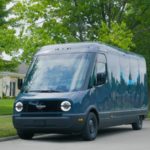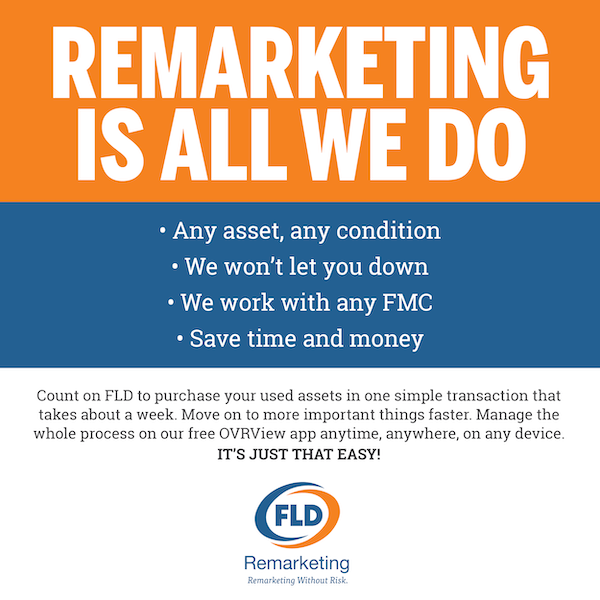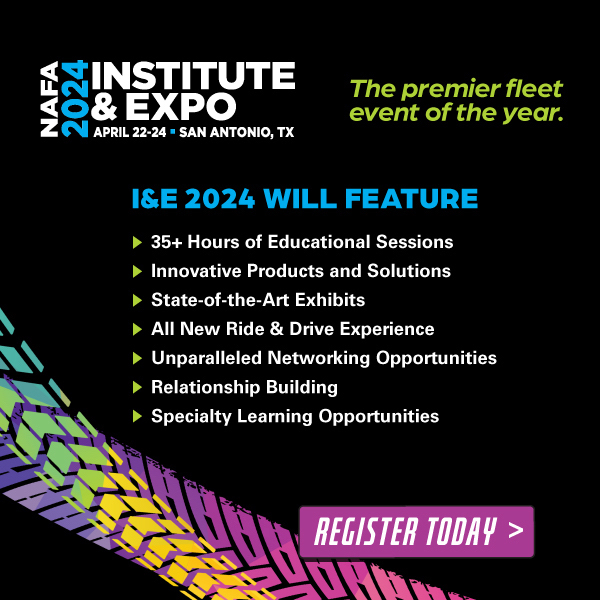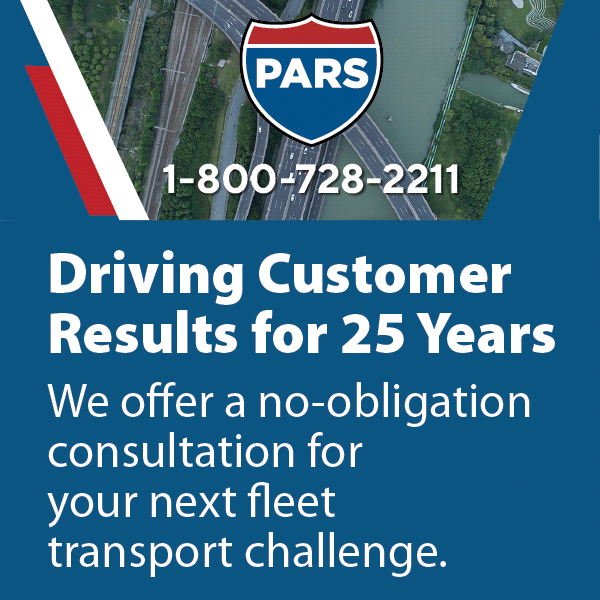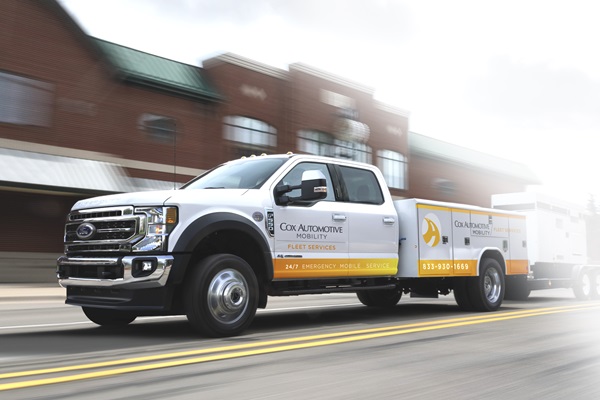
By Fleet Management Weekly Staff
January 17, 2024
The automotive industry has grown more over the past few years than ever before. To keep up with the rapidly evolving industry, fleet managers are turning to mobility companies to manage the many needs of their fleets. Cox Automotive Mobility is one of the top mobility companies in the automotive space, offering fleet services that include maintenance, data-driven insights, and EV battery solutions.
With the help of companies like Cox Automotive, fleet managers can increase productivity, better integrate EVs into their fleet, and optimize their total cost operation. We spoke with Joe George, President of Cox Automotive Mobility Solutions, to learn more about the services that Cox Automotive offers its clients and what insights he’s seeing in the industry’s future. With over 17 years of experience in the automotive industry and five years as President of Cox Automotive, George has seen the company through a dynamic period of growth and numerous acquisitions.
Here is what came of our conversation:
Please tell us about your role as President of Cox Automotive Mobility Solutions Group, overseeing the company’s shared fleet management and consumer mobility solutions.
As President of Cox Automotive, I’ve witnessed the industry evolve over the last five years. We’re interested in the things that are involved with the revolution of vehicle technologies. The George family’s been in the automobile business for 72 years, and I believe in the next 10 years, the technology of the vehicles themselves is going to change more than they did over the last 72 years.
 Our definition of mobility is an evolution of the economics of transportation and how people and packages move from point A to point B. Transportation or owning/using a vehicle really are all meant to solve use cases for us as consumers. Uber and Lyft have sort of transformed the way we think about how people move from point A to point B. That’s going to continue to evolve ultimately towards a future which is autonomous, connected, electric, and shared and driven by commercial fleets.
Our definition of mobility is an evolution of the economics of transportation and how people and packages move from point A to point B. Transportation or owning/using a vehicle really are all meant to solve use cases for us as consumers. Uber and Lyft have sort of transformed the way we think about how people move from point A to point B. That’s going to continue to evolve ultimately towards a future which is autonomous, connected, electric, and shared and driven by commercial fleets.
Cox has been in the automobile business since the ‘60s, and we want to make sure we’re satisfying our customers into the future. We believe that as more fleets help move packages and people from point A to point B, we want to make sure we have the right services for our customers.
So, we’ve been busy–we got into the fleet operations business to help fleets make better decisions about where and how to repair to optimize their total cost of operation. We also started actually doing the services on the vehicle, building on the history we have at Manheim around vehicle reconditioning. Then we took a pretty bold move in the electrification space, both with the investment of Rivian, as well as the acquisition of Spear’s New Technologies, to help with the full life cycle of the battery.
What have been some of the most recent acquisitions over the last year or two? How have those benefited the company and your clients?
Two years ago, we acquired Spear’s New Technologies, which is a battery life cycle management company. That’s really provided a foundation of knowledge and a great team that’s allowed us to manage important recalls on behalf of the OEMs as we’re learning about electric vehicles, the batteries, and how it all works together. We’re in a real learning mode, but we’re very excited about that business, because the Cox family is really interested in sustainability.
They’re outdoors people, so the notion of the life cycle of these batteries–so that we don’t have to mine the earth or put used batteries into the ground–is really interesting to us from a sustainability standpoint. But it’s really important to our OEMS learning this industry as we evolve.
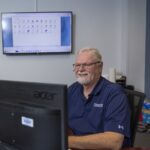 Next, we acquired FleetNet America, which is sort of the market leader in the class five through eight, connecting fleets with fleet service providers at a pretty large scale. We’re super excited about this business because it allows us to provide our fleet clients with 24/7/365 service around emergency roadside needs, well-informed insights, and the right kind of connections and service providers to manage their DOT inspections, regular maintenance, and the repair needs on the vehicles. FleetNet is the industry leader with 63,000 service providers signed up that we then connect in more digital ways so that fleets get the services they need.
Next, we acquired FleetNet America, which is sort of the market leader in the class five through eight, connecting fleets with fleet service providers at a pretty large scale. We’re super excited about this business because it allows us to provide our fleet clients with 24/7/365 service around emergency roadside needs, well-informed insights, and the right kind of connections and service providers to manage their DOT inspections, regular maintenance, and the repair needs on the vehicles. FleetNet is the industry leader with 63,000 service providers signed up that we then connect in more digital ways so that fleets get the services they need.
We’ve continued to acquire fleet services businesses. We acquired Corcoran Motor Services out of Houston, Texas, and they work great across the nation because they handle the Home Depot services. Not only has it been a great addition to the leadership team services, but also an important introduction into Home Depot. So, we’re learning a ton about both their over-the-road trucking business, as well as their hourly rental business.
Where do you see the company in five years in terms of its growth?
 I think we’re an even more important part of helping our fleet clients optimize their total cost operation, which means we’re helping them minimize downtime. We’re going to play an important role in helping them move to more clean technology fuels, whether that be electric or hydrogen fuel cell.
I think we’re an even more important part of helping our fleet clients optimize their total cost operation, which means we’re helping them minimize downtime. We’re going to play an important role in helping them move to more clean technology fuels, whether that be electric or hydrogen fuel cell.
And [we’re] also dealing with optimization and care of the sophisticated sensors that are going to be increasingly part of the vehicles we’re operating, which allow us to know the temperature inside the trailers or to understand tire inflation rates to help us regulate that. These vehicles are becoming increasingly sophisticated and aware of themselves, so how can we help our fleets keep them calibrated in the right way?
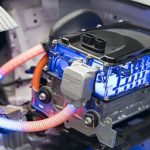 I think we’re also going to help fleets with connectivity so we can do better planning for preventative maintenance, anticipate repairs, and be a real partner in how fleets across America operate. Then in the battery world, we’ll be growing and changing and evolving to help support our battery manufacturers, our OEMs, and our dealers and fleets in this new propulsion system that is electrification. We’ll help them face the many challenges between now and 2030/34 where a more meaningful amount of the car park is electric.
I think we’re also going to help fleets with connectivity so we can do better planning for preventative maintenance, anticipate repairs, and be a real partner in how fleets across America operate. Then in the battery world, we’ll be growing and changing and evolving to help support our battery manufacturers, our OEMs, and our dealers and fleets in this new propulsion system that is electrification. We’ll help them face the many challenges between now and 2030/34 where a more meaningful amount of the car park is electric.
Do you have one or two client success stories that you can share?
One success story involves a large delivery company that had a certain make and model of van they were using. Through the data analytics work we were doing, one of our performance managers at FleetNet discovered that a coolant hose was having issues. Our performance manager presented this situation to the fleet manager at this company, and they decided to go ahead and preemptively replace all the radiator hoses on normal maintenance cycles and save them a lot of downtime in the future.
 So, when you’re partnering in the right way and listening to the data, you’re going to drive insights that you can bring to customers to allow them to make decisions. They were thrilled to keep their vans operating because when they’re not delivering, they’re not making money.
So, when you’re partnering in the right way and listening to the data, you’re going to drive insights that you can bring to customers to allow them to make decisions. They were thrilled to keep their vans operating because when they’re not delivering, they’re not making money.
Another story involves us managing one of the largest recalls in the electric battery space. We coordinated with an OEM dealer group and helped manage the logistics of replacing the battery. What do you do with the old battery after taking it out–remanufacture it? Recycle it? So, we help with diagnostics, and we shipped over 100,000 batteries over the last 12 months. We’re all learning about where you can ship a battery and how you can repair it. So, it’s been an exciting time in our industry, and I feel like we’re doing it in a highly collaborative way with our customers, which lets us see the real-world impact of what we’re doing.
Is there anything else that you would like to add?
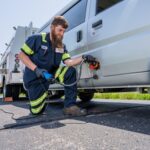 For us, our people are fuel–the people who help with emergency roadside services, the team members out on the side of the roads actually doing the work. So, providing them with the right tools and the right insights to help them do their jobs better is going to continue to be our number one priority. They are our service provider, and I think it’s going to be interesting to watch our industry transition. I think the type of fuel used from class one to eight is going to be eight different stories.
For us, our people are fuel–the people who help with emergency roadside services, the team members out on the side of the roads actually doing the work. So, providing them with the right tools and the right insights to help them do their jobs better is going to continue to be our number one priority. They are our service provider, and I think it’s going to be interesting to watch our industry transition. I think the type of fuel used from class one to eight is going to be eight different stories.
It’ll be interesting to see how autonomy moves into our industry. It’s here today in the form of adaptive cruise control and anti-collision sort of first generation. But how does over-the-road trucking change over the next decade? From a platooning standpoint, how does hydrogen fuel become a mover in this?
 It’s a highly dynamic time in the technologies of the vehicles themselves and also the economics of transportation. Who pays for the George family to shop? We either drive to the store or get goods delivered, but either way, miles are being consumed. As that changes, it’s going to be a fascinating economic [era], but the consumer will ultimately get what they want. So, I think fleets are going to be really important to the future.
It’s a highly dynamic time in the technologies of the vehicles themselves and also the economics of transportation. Who pays for the George family to shop? We either drive to the store or get goods delivered, but either way, miles are being consumed. As that changes, it’s going to be a fascinating economic [era], but the consumer will ultimately get what they want. So, I think fleets are going to be really important to the future.
What are some of the things you’re seeing? What are you focused on?
It’s a lot of the same things, but with little new twists all the time. Certainly electrification, but also safety. Safety is always important, but it’s become more important in the past few years because the roads are getting scarier with distractions. But I see interesting things too–I’m starting to see overlays between safety and sustainability. People are starting to talk about that, and I think AI is a huge driver of that.


